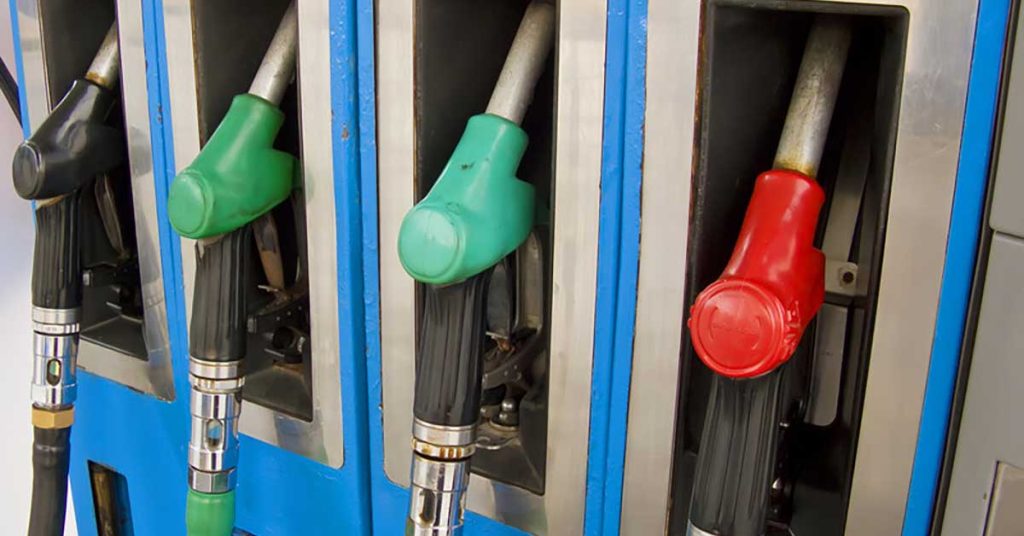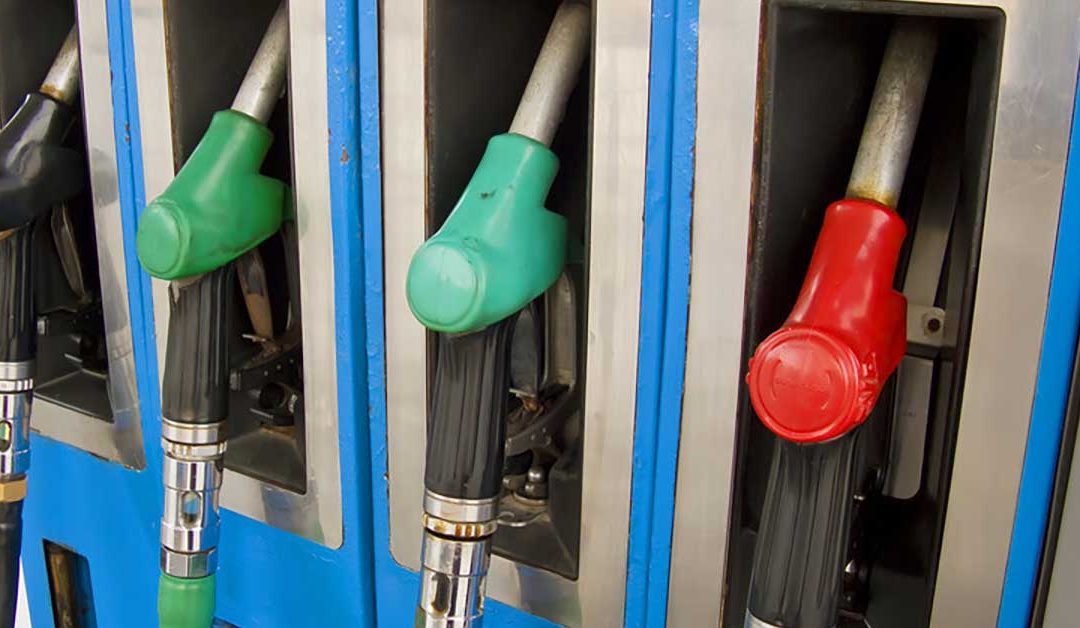The cost to repair a diesel engine that has had gas (petrol) mistakenly added to it can vary widely depending on the extent of the damage and the specific make and model of the engine. In general, running gasoline in a diesel engine can cause serious damage to the fuel system, injectors, and other engine components, as gasoline does not lubricate the way diesel fuel does and can cause excessive wear and tear. Some potential repairs that may be needed in a diesel engine that has had gas in it include:
Fuel system flush:
This involves draining and flushing the entire fuel system to remove any traces of gasoline and prevent further damage.Fuel injector replacement:
Gasoline can damage diesel fuel injectors, which may need to be replaced if they are not functioning properly.Fuel pump replacement:
Gasoline can cause damage to the fuel pump, which may need to be replaced if it is no longer operating correctly.Engine component replacement:
Depending on the severity of the damage, other engine components such as filters, lines, and seals may also need to be replaced.Labor and diagnostic costs:
Labor costs for repairing a diesel engine can vary depending on the location and the specific repair shop. Diagnostic costs may also be incurred to assess the extent of the damage.
The cost of repairing a diesel engine that has had gas in it can range from several hundred to several thousand dollars, depending on the factors mentioned above. It’s important to consult with a qualified mechanic or diesel engine specialist to assess the damage and provide an accurate estimate for repairs. Additionally, it’s crucial to address the issue as soon as possible to prevent further damage and avoid potentially dangerous situations.

Why is regular gasoline bad for diesel engines?
Regular gasoline, also known as petrol, is not suitable for diesel engines due to several key reasons:
Ignition Properties:
Diesel engines rely on compression ignition, where the fuel mixture is ignited by the heat generated from the compression of air in the combustion chamber. Diesel fuel has a higher ignition temperature compared to gasoline. Gasoline, being formulated for spark ignition in gasoline engines, has a lower ignition temperature, and when used in a diesel engine, can ignite prematurely or not ignite at all, leading to incomplete combustion and potentially damaging knocking or detonation.Lubrication Properties:
Diesel fuel has lubricating properties that help to lubricate the fuel system components, such as fuel injectors and fuel pump, which operate at high pressures. Gasoline lacks these lubricating properties, and prolonged use of gasoline in a diesel engine can result in increased wear and tear on these components, leading to reduced performance and potential damage.Chemical Composition:
Diesel fuel and gasoline have different chemical compositions, including variations in the types and amounts of hydrocarbons, additives, and detergents. Using gasoline in a diesel engine can result in the wrong fuel mixture, which can disrupt the combustion process, potentially causing damage to engine components and affecting overall performance.Fuel System Compatibility:
Diesel engines have specific fuel systems designed to handle the properties of diesel fuel, including fuel filters, fuel lines, and fuel injectors. Gasoline can cause damage to these components, leading to clogging, corrosion, or other issues.Emissions Compliance:
Diesel engines are subject to emissions regulations that require the use of diesel fuel with specific properties to meet emissions standards. The use of gasoline in a diesel engine can result in increased emissions of harmful pollutants, such as hydrocarbons, nitrogen oxides (NOx), and particulate matter, which can contribute to environmental pollution and non-compliance with emissions regulations.
In summary, regular gasoline is not suitable for diesel engines due to differences in ignition properties, lubrication properties, chemical composition, fuel system compatibility, and emissions compliance. Using gasoline in a diesel engine can cause damage to engine components, reduce performance, and result in increased emissions, leading to potential costly repairs and environmental concerns. It’s crucial to always use the correct fuel type for your engine as specified by the manufacturer and avoid mixing gasoline and diesel fuels.
What steps should I take if I accidentally put gas in my diesel truck?
If you accidentally put gasoline (petrol) in your diesel truck, it’s important to take prompt action to minimize potential damage. Here are the steps you should take:
Do not start the engine:
If you have not started the engine after realizing the mistake, do not attempt to start it. Starting the engine can circulate the gasoline throughout the fuel system and increase the risk of damage.Do not drive the vehicle:
Driving the vehicle can exacerbate the problem by further circulating the gasoline in the fuel system. Avoid driving the truck to prevent potential damage. MechaMedix offers 24/7 towing for diesel trucks in Bakersfield and surrounding communitiesTurn off the ignition:
If you have started the engine, turn it off immediately to prevent further fuel circulation.Drain the fuel tank:
If possible, have the fuel tank drained as soon as possible by a professional mechanic or tow the truck to a reputable repair shop. They will have the proper equipment and expertise to drain the fuel tank and remove the gasoline from the fuel system.Flush the fuel system:
After the fuel tank has been drained, the fuel system, including fuel lines, fuel filters, and fuel injectors, may need to be flushed to remove any remaining traces of gasoline. This should be done by a qualified mechanic to ensure proper cleaning and minimize the risk of damage.Replace fuel filters:
Gasoline can clog fuel filters in a diesel engine. It’s important to replace all fuel filters, including the primary and secondary filters, to ensure that any potential residue from gasoline is removed.Inspect for damage:
Once the fuel system has been drained and flushed, have the mechanic inspect the fuel system and engine components for any signs of damage or wear, such as fuel injectors, fuel lines, and fuel pump. If any damage is detected, appropriate repairs or replacements should be carried out.Refill with diesel fuel:
Once the fuel system has been properly cleaned and inspected, refill the fuel tank with the appropriate diesel fuel as recommended by the manufacturer.Take preventive measures:
To avoid similar mistakes in the future, be vigilant when refueling and always double-check that you are using the correct fuel type for your diesel truck. Pay attention to fuel pump labels and fuel nozzle color coding to ensure you are using diesel fuel.
It’s crucial to address the issue as soon as possible and seek professional assistance from a qualified mechanic or diesel engine specialist to properly drain, flush, and inspect the fuel system to minimize potential damage. Using gasoline in a diesel engine can cause serious damage, and prompt action is essential to mitigate the risk and prevent costly repairs.
Does insurance cover gas in a diesel engine?
Insurance coverage for damage caused by putting gasoline in a diesel engine depends on the specific terms and conditions of your insurance policy. In general, most standard auto insurance policies do not cover damage resulting from misfueling, which includes putting gasoline in a diesel engine.
However, some insurance policies may offer optional coverage for misfueling or similar incidents as part of additional coverage options, such as comprehensive or additional peril coverage. It’s important to review your insurance policy or contact your insurance provider directly to understand what coverage is included in your policy and whether misfueling is covered.
If you have mistakenly put gasoline in your diesel engine and incurred damage, you may need to bear the repair costs out of pocket, unless you have specific coverage in your insurance policy that covers such incidents. It’s always advisable to read and understand your insurance policy and consider any additional coverage options that may be available to you to protect against potential risks, including misfueling or other incidents that may not be covered by a standard auto insurance policy.
What are the symptoms of gas in a diesel engine?
If gasoline (petrol) has been mistakenly introduced into a diesel engine, it can cause a range of symptoms that may indicate an issue with the fuel system. Here are some common symptoms of gas in a diesel engine:
- Engine misfire or rough running: Gasoline has different combustion properties compared to diesel fuel, and using gasoline in a diesel engine can cause misfiring or rough running. The engine may run unevenly, shake, or produce unusual noises.
- Difficulty starting or not starting: Gasoline has lower ignition temperature compared to diesel fuel, so using gasoline in a diesel engine may result in difficulty starting the engine, or the engine may not start at all.
- Loss of power: Gasoline in a diesel engine can lead to reduced power or performance. The engine may feel weak, struggle to accelerate, or have a noticeable loss of power while driving.
- Smoke from exhaust: Gasoline in a diesel engine can result in excessive smoke from the exhaust. The exhaust smoke may be different in color or smell compared to normal diesel exhaust, and it may indicate incomplete combustion.
- Fuel system damage: Gasoline can cause damage to the fuel system components in a diesel engine, such as fuel injectors, fuel lines, and fuel filters. If gasoline is used for an extended period or in high concentrations, it can lead to clogging, corrosion, or other damage to these components.
- Check engine light: If gasoline has been introduced into a diesel engine, it may trigger the check engine light on the vehicle’s dashboard. The check engine light can indicate a fuel system issue, among other potential problems.
It’s important to note that the severity of symptoms may vary depending on the amount of gasoline introduced, the duration of use, and the specific make and model of the diesel engine. If you suspect that gasoline has been mistakenly used in your diesel engine and you notice any of these symptoms, it’s crucial to stop using the vehicle immediately and have it inspected and repaired by a qualified mechanic to minimize potential damage to the engine and fuel system. Continuing to drive a diesel engine with gasoline in it can result in further damage and increased repair costs.


Recent Comments